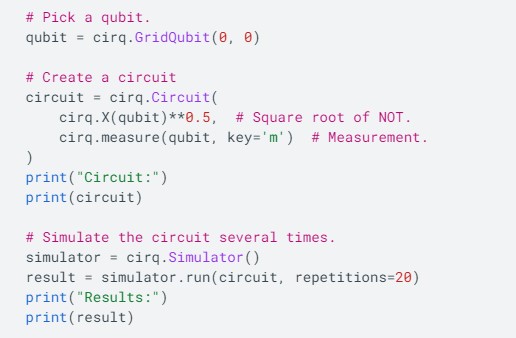Top 5 Programming Languages for Quantum Computing
Developers want to learn new types of languages for quantum programming because quantum computing is a new and rapidly growing field. Quantum computers are different from traditional computers in that they use quantum bits, or qubits, instead of classical bits. This makes them particularly well-suited for certain types of tasks, such as machine learning and simulation. In this blog post, we will explore the top programming languages for quantum computing.
Cirq
Python is a widely-used programming language that is known for its readability and ease of use. It is a popular choice for quantum computing due to its flexibility and the wide range of libraries that are available for it. In addition, the Python community is large and active, which means that there is plenty of support available if you need it.

Cirq is a Python module for designing, simulating, and running quantum algorithms on quantum computers and simulators. Cirq was created by Google and is open source. The library enables users to write quantum programs in a natural way, using the high-level operations that are most familiar to classical programmers. In addition, Cirq makes it easy to target different kinds of quantum devices, including processors from IBM Q, Rigetti Computing, and Google’s own Quantum AI team. As quantum computing technology continues to develop, Cirq will be an essential tool for anyone interested in writing quantum programs.
Qiskit
Qiskit is an open-source SDK for working with quantum computers at the level of pulses, circuits, and application modules. Qiskit provides a comprehensive framework for developing quantum computing programs and applications. Qiskit’s core packages are Aqua, Terra, Ignis, and Aer. Qiskit also supports Jupyter Notebooks hosted in IBM Quantum Lab. Qiskit is developed and maintained by IBM.
When you are looking to start Qiskit, you have two options. You can start Qiskit locally, which is much more secure and private, or you get started with Jupyter Notebooks hosted in IBM Quantum Lab.
If you want to use Qiskit without installing any software on your computer, the cloud-based Quantum Lab is the best option. It also provides access to a real quantum computer, so you can see your code running on a truly quantum device.
However, if you’re interested in keeping your work private or want to experiment with installing Qiskit on your own machine, the local install is the way to go. Either way, Qiskit provides everything you need to start working with quantum computers.
QCL
Quantum computers are a new type of computer that can solve certain problems much faster than classical computers. One way to program a quantum computer is with the Quantum Computing Language (QCL). QCL is a high-level programming language that resembles classical languages like C or Pascal. This allows for the complete implementation and simulation of quantum algorithms (including classical components) in one consistent formalism.
QCL is architecture independent, meaning it can be used on any type of quantum computer. So far, QCL has been used to create quantum algorithms for factoring large numbers, searching unsorted databases, and simulating quantum systems.
Silq
Silq is a new high-level programming language that was published in 2020. Compared to other quantum computing languages, such as QCL and AMASM, Silq is at a much higher level. This makes it more approachable for newcomers to the field of quantum computing. It also has a strong static type system, which can help catch errors early on.
Silq was developed at ETH Zürich, and is written in D language. If you’re interested in learning more about Silq, or contributing to its development, you can check out its GitHub page.
QML
QML is a Haskel-like programming language that enables developers to create high-performance, fluidly animated, and visually appealing applications. QML was published in 2007, and it is based on strict linear logic. It has the capability to integrate reversible and irreversible quantum computations.